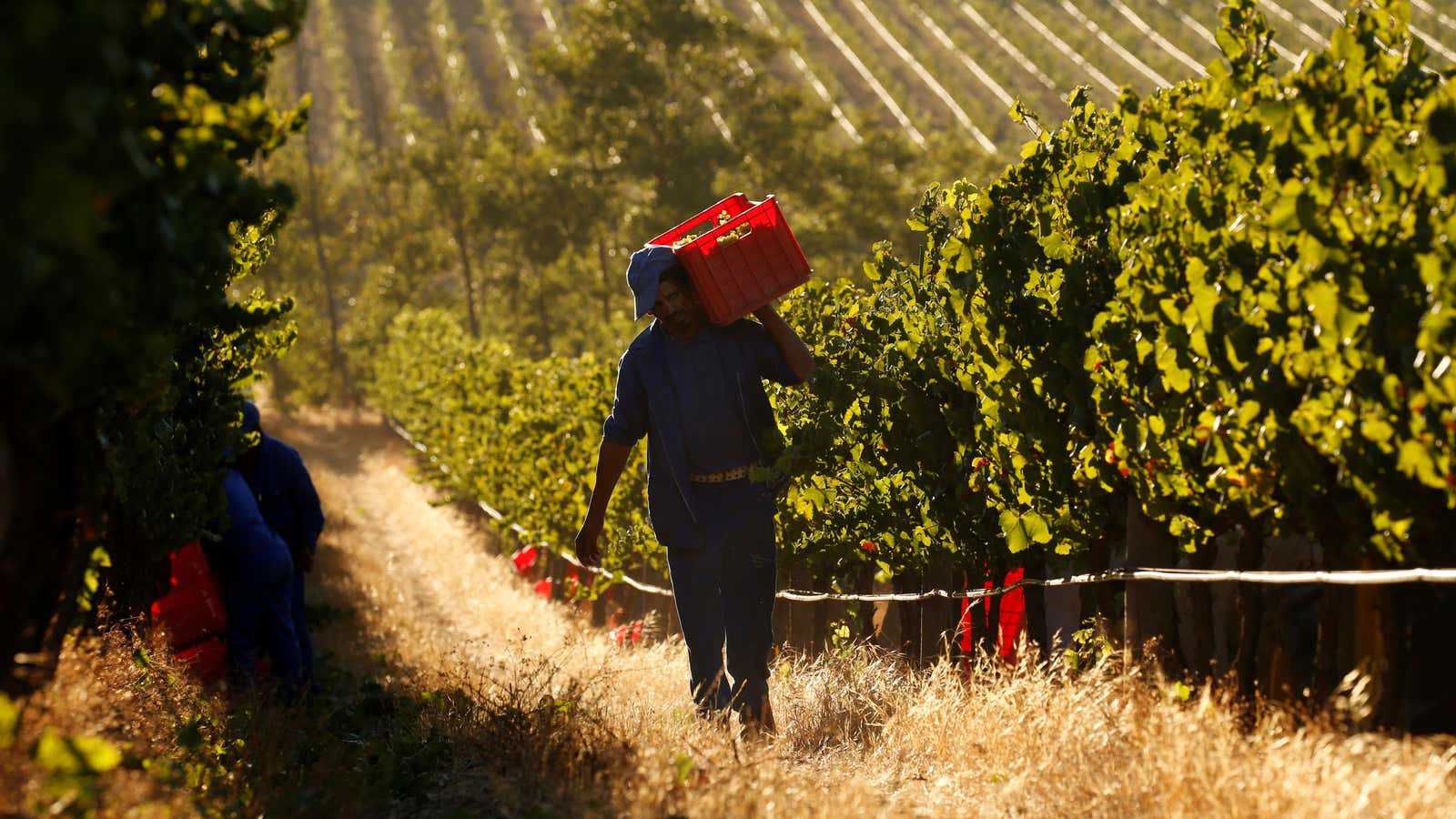A documentary about South African wines is leaving a sour taste in Denmark. Supermarkets there are removing the country’s wines from shelves following airing of the film, “Bitter Grapes—Slavery in the Vineyards,” on national television.
The investigation by Danish filmmaker Tom Heinemann revealed appalling living and working conditions of farm workers in South Africa’s wine region. The film depicts long working hours in harsh weather, decrepit living conditions, exposure to toxic pesticides and the perpetuation of the “dop system”—an apartheid-era arrangement in which workers were paid in alcohol rather than money. The film will also be shown in Norway. Heinemann hopes to air the English version of his film on British television, he told the South African newspaper the Sunday Times.
“If I look at the websites of the vineyards that I visited, that’s a completely different picture that I see,” Heinemann told Danish radio station 702.
Supermarket chain Dagrofa has pulled products from the Robertson Winery, featured in the film as among the worst abusers. Retailers Spar, Meny and KIWI have stopped imports of Robertsons, according to VinaVisen, a Danish wine publication.
VinPro, an industry body, criticized the documentary as biased and said it ignored reforms taken by South Africa’s centuries-old wine industry. In response to the film, Robertson Winery published a letter on Oct. 7, before the film aired, from a Swedish importer, which praised Robertson’s relationship with workers and assured customers that working conditions were “not tantamount to slavery.” The same winery has been affected by strikes since late August; workers are demanding increased wages.
Scandinavia consumes an average 50 million liters a year of South Africa’s reds, whites and blends, according to some reports. Sweden was South Africa’s second largest export market in 2014, consuming 20 million liters, beaten only by the United Kingdom, according to (pdf) the South African Wine Industry Information & Systems. Denmark is a favorite destination for boxed wines, according to the industry monitor.
This is not the first time the ugly side of South Africa’s scenic vineyards has been exposed. In 2012 and 2013, workers on fruit farms in the Western Cape embarked on a violent strike demanding that the 69 rand a day (just under $7 at the time) standard minimum wage be doubled. They eventually settled on a 52% increase, amounting to 105 rand a day (about $10).
Increased wages haven’t changed the lives of most farm workers—many of whom come from families who have worked South Africa’s vineyards and orchards since slavery in the eighteenth century. A 2015 research report (pdf) on farm workers’ lives today showed that while the feudal-like system has fallen away thanks to recently diversified land ownership, farm workers still face labor insecurity.
In 2011, the Human Rights Watch report “Ripe with abuse,” uncovered stories of workers who were forced to live in pig stalls, or laborers who were denied basic protective gear when working with dangerous pesticides. They also found that workers’ rights under South Africa’s labor laws were ignored.
